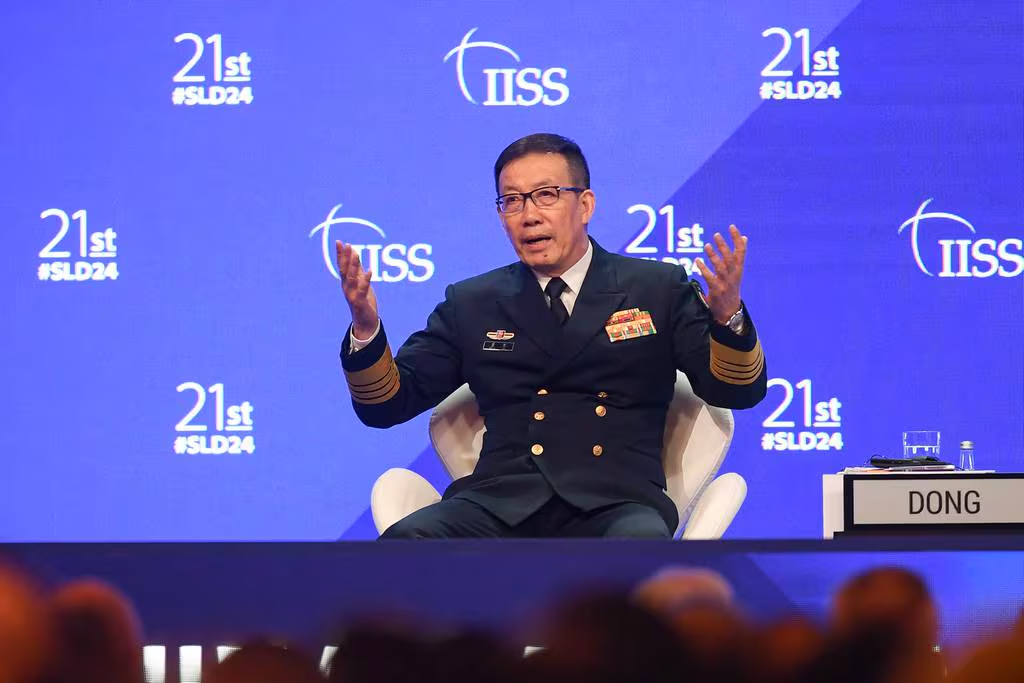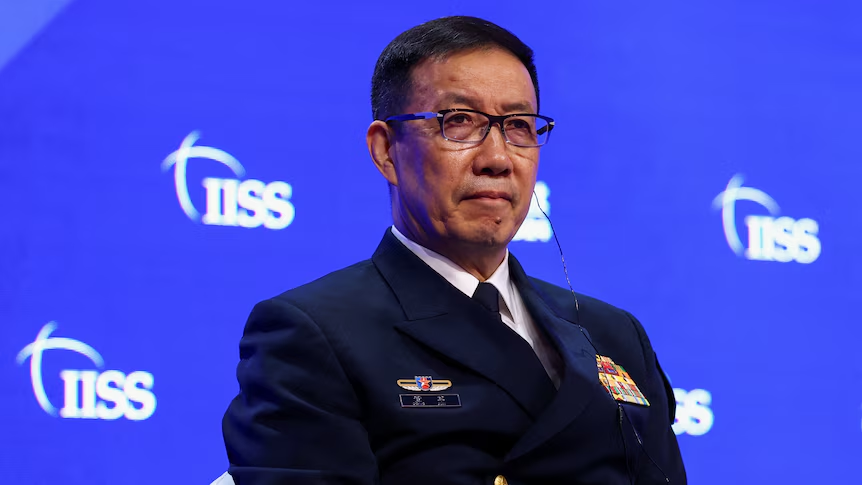After meeting with U.S. Defense Secretary Lloyd Austin for the first time, China’s new defense minister, Adm. Dong Jun, paused in an outdoor hallway to wipe the fog from his glasses.
Standing near the press, Dong smiled and shared with a member of the American delegation his recommendation for the best place in China to see pandas. It was a moment of diplomacy in action.
However, Dong’s tone changed two days later. During a stern and at times strident speech on the final day of the Shangri-La Dialogue, a defense summit in Singapore that attracts officials from across the region, Dong issued a warning.
He stated that those who support Taiwan’s independence—a region considered a rogue province by China’s leadership—would face “self-destruction.” He also mentioned that the likelihood of a “peaceful reunification” with Taiwan was “eroding.”
These contrasting moments highlighted China’s objectives for the summit and, by extension, the reputation it may be aiming to cultivate in the region.
It appeared that China sought to reassure other countries of its responsible behavior, evidenced by the resumption of top military talks with the U.S. Simultaneously, however, China conveyed a message of enforcement, particularly concerning its interests in Taiwan and the South China Sea.
Dong’s speech underscored China’s firm stance on sensitive issues following criticism from regional neighbors during the summit.
Rory Medcalf, head of the National Security College at Australian National University, noted on X that Dong’s speech was “the most consistently intimidating” they had heard from China at a Shangri-La Dialogue.
A U.S. official agreed, describing the speech as “tone deaf.” The official, speaking anonymously due to the topic’s sensitivity, pointed out that countries in the region and globally continue to have serious concerns about China’s coercive activities in the East and South China seas, the Taiwan Strait, and beyond.
This reference included China’s military actions around the Second Thomas Shoal, a reef in the South China Sea where the Philippines has an outpost. China and the Philippines, along with other nations, assert sovereignty over various geographic features in the area.
Chinese Coast Guard vessels have repeatedly harassed Philippine vessels during resupply missions, at times using water cannons and disabling ships.

Two days before Dong’s speech, Philippines President Ferdinand Marcos Jr. warned that he would consider the death of any Filipino due to such actions an act of war, a stance that could involve the U.S. in the conflict, given its mutual defense treaty with Manila.
Marcos was not the only speaker with harsh words for China at the conference.
Austin reiterated Pentagon talking points that conflict is not “imminent or unavoidable,” while Australia’s defense minister, Richard Marles, stated, “As China steps up to a larger role, it must accept, like all great powers, that there will be much greater scrutiny on the way it uses its strength.”
Two years ago, following a visit to Taiwan by then-House Speaker Nancy Pelosi, China ended military talks with the U.S., causing concern among participants at last year’s Shangri-La Dialogue when China’s then-defense minister declined an offer to meet with American defense officials.
These talks resumed after a summit between U.S. President Joe Biden and Chinese leader Xi Jinping in November, with Dong emphasizing the importance of communication during his remarks.
“The Chinese military never acts from a position of strength in its relations with foreign militaries,” Dong said. “At the same time, others should not expect to impose their will on us.”
However, as one audience member pointed out during a Q&A session, China’s actions often do not align with its signals.
Just before the conference, China launched a series of military drills around Taiwan in response to a speech by the island’s new president, viewed by some in Beijing as pro-independence. China called these exercises a “punishment.”
In his speech, Dong attributed the tensions in the South China Sea and Taiwan to “external interfering forces,” a euphemism for the U.S. and other allied nations. He declined to comment on China’s role in the Russia-Ukraine war or the Israel-Hamas conflict in Gaza.
However, he spoke at length about those he claimed were seeking Taiwanese independence “incrementally,” accusing them of testing China’s red lines with arms sales and “official engagements,” likely alluding to recent visits by members of Congress to the island.
When the moderator took several critical questions from the audience, Dong attempted a quick joke, saying, “I can feel the charm of the Shangri-La Dialogue.”


